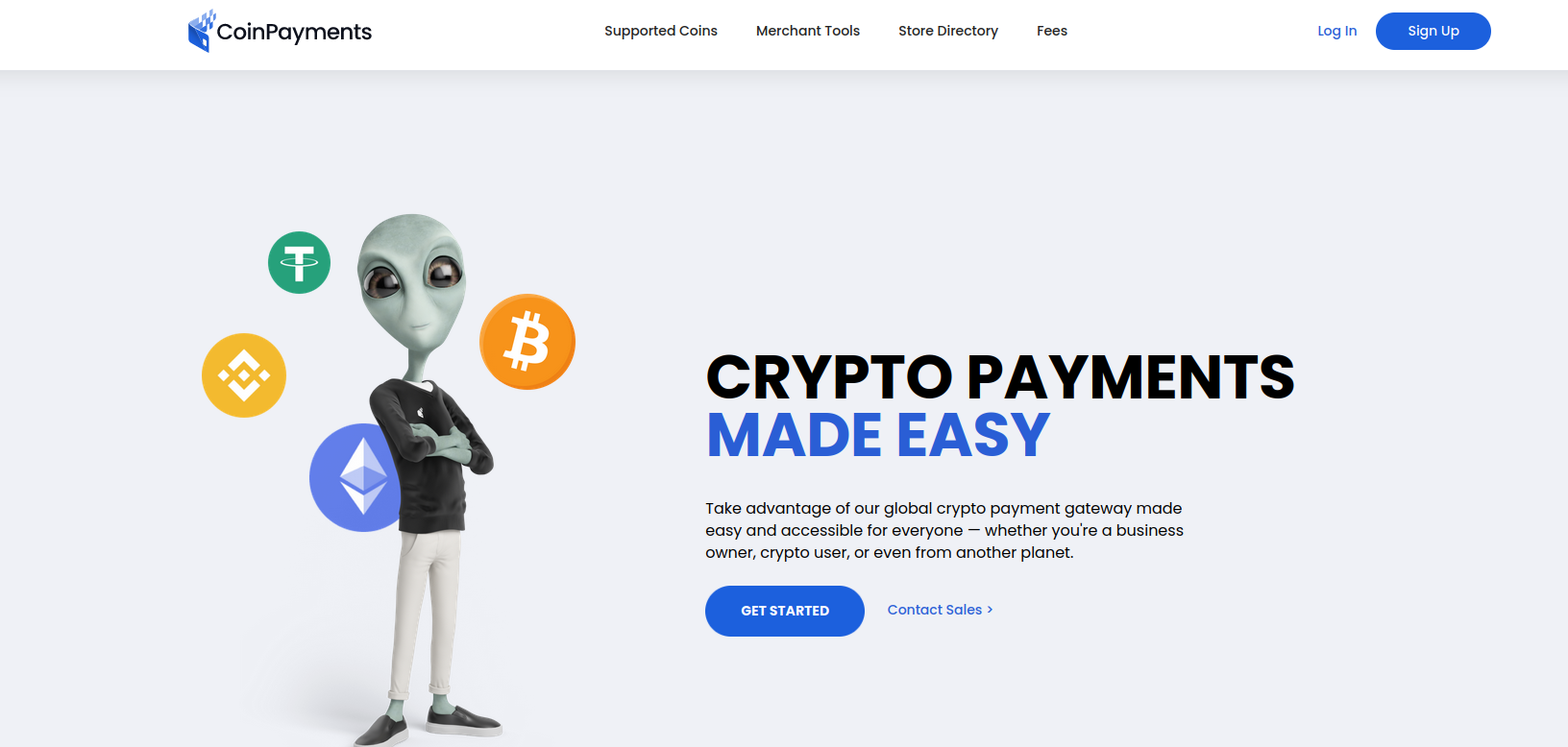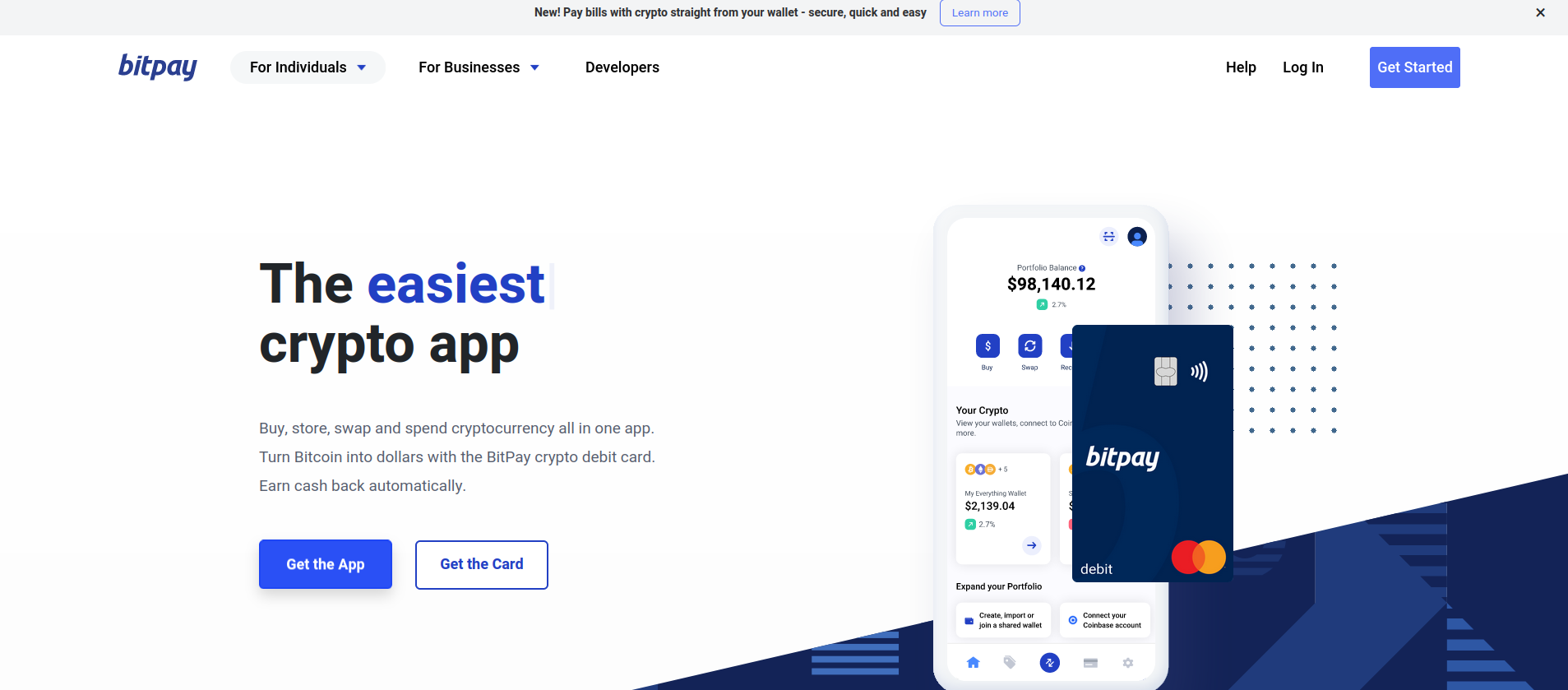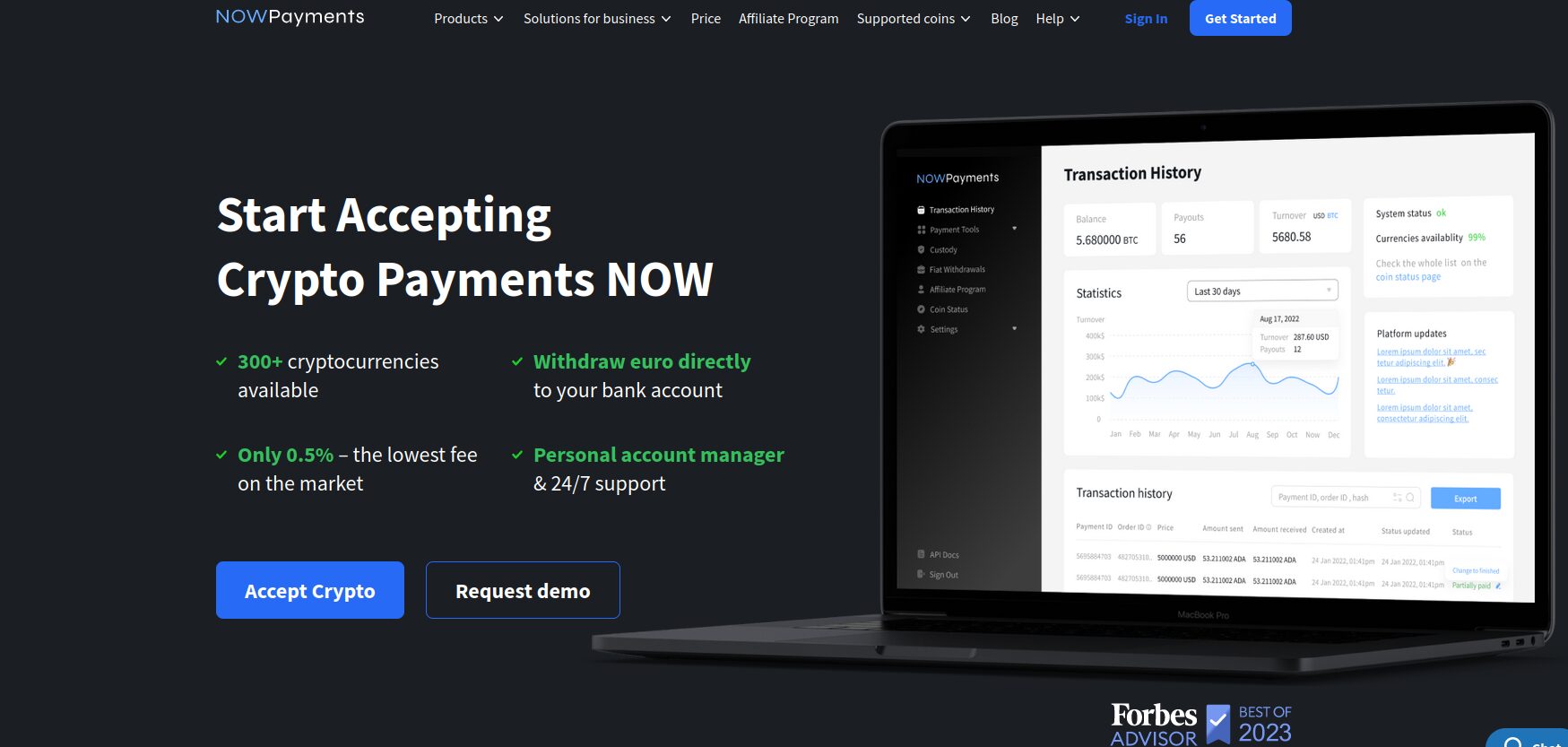In today’s digital economy, accepting Bitcoin and other cryptocurrencies as payment methods on your website can position your business at the forefront of financial innovation. Cryptocurrencies offer a modern approach to transactions, providing benefits such as lower transaction fees and access to a global customer base. As digital currencies grow in popularity, integrating crypto payment options can enhance your eCommerce strategy and appeal to tech-savvy consumers depending on the industry your in.
Preparing your online business to handle cryptocurrency involves understanding the mechanics of crypto payments and ensuring that your website’s infrastructure can securely process these transactions. With proper setup, your business can provide a seamless checkout experience for customers opting to use Bitcoin or altcoins. In addition to the technological aspects, it’s crucial to stay informed about regulatory compliance and tax implications associated with crypto payments to maintain the integrity and legality of your business operations.
Key Takeaways
- Introducing cryptocurrency as a payment option can attract a wider customer base depending on the industry
- Secure and efficient processing of crypto transactions is essential for customer trust
- Staying up-to-date with regulations ensures the legality of crypto transactions for your business use-case
Understanding Crypto Payments
Accepting cryptocurrency provides an avenue for merchants to tap into a growing digital economy. It is critical for businesses to recognize the benefits and challenges that come with the incorporation of this decentralized form of payment.
Benefits of Accepting Crypto
Flexibility and Access: Cryptocurrency transactions operate on a decentralized network, using blockchain technology to record transactions. Merchants can take advantage of this global system which facilitates instant payments without the need for traditional banking infrastructure. This opens up markets where credit cards may not be prevalent.
Enhanced Security: Crypto payments can offer more secure transactions, as blockchain’s inherent structure makes it resilient against fraud and unauthorized tampering. Additionally, the use of cryptocurrency eliminates the need to store sensitive customer information, reducing the risk of data breaches.
Lower Transaction Fees: Transactions made in cryptocurrency often incur lower fees compared to traditional payment methods. This reduction in cost is beneficial to both the merchant and the customer.
Challenges and Considerations
Volatility: One of the biggest concerns surrounding cryptocurrency is its price volatility. Cryptocurrencies can experience significant price fluctuations in short periods, impacting the value of transactions.
Regulatory Landscape: Crypto regulations vary across different countries. Businesses need to stay informed about the legal aspects of accepting crypto payments, including tax implications and reporting requirements.
Technical Knowledge: Integrating cryptocurrency payments requires a certain level of technical expertise. Merchants must understand how to set up and utilize a digital wallet, as well as how to convert cryptocurrency into their local currency, if they desire. Depending on the website platform it may require custom integration by a software developer such as AGR Technology to build a customised integration.
It is essential for businesses to weigh these points carefully to determine if accepting cryptocurrency aligns with their operational capacity and financial strategy.
Different popular platforms to help you accept Cryptocurrency payments
1) CoinPayments

CoinPayments is a platform primarily focused on eCommerce businesses that acts as a centralized wallet enabling merchants to accept and store Cryptocurrency payments from their customers. The platform boasts an impressive number of supported Cryptocurrencies (2,335+) including popular options like Bitcoin, ETH, Litecoin and many more.
Key features:
Multi-Coin Digital Wallet: In addition to its primary function as a payment processor for online shops it can also be used as a traditional cloud-based Cryptocurrency wallet to buy, hold and transfer different Crypto assets.
Automatic coin conversion: This feature aims to help reduce volatility by allowing you to automatically convert received assets into another Cryptocurrency coin type such as Bitcoin to Ethereum or other combinations.
Automatic forwarding: The auto forwarding feature enables you to automatically send received money into any type of Cryptocurrency wallet you control to organize your assets as you wish.
POS style functionality: CoinPayments has a POS style system enabling you to receive in-person transactions in a brick and mortar location.
eCommerce integrations: Supports popular shop platforms such as WooCommerce, Magento, BigCommerce, Zencart and Opencart
Pros
- CoinPayments supports more than 2,300 digital currencies and tokens
- The program allows merchants to seamlessly accept cryptocurrency payments
Cons
- The wallet is custodial, therefore users need to trust the company with their assets
- The wallet’s code is not open source
- In 2017, CoinPayments experienced a large-scale breach caused by a flaw in the platform’s software
- At the time of writing no support is present for Shopify
2) BitPay

BitPay is another popular option on the market and has options catering to both end-users and businesses wanting to accept Crypto payments. Its notable distinction to CoinPayments and some other platforms its BitPay card which acts like a traditional debit card that can be used for payment processing.
The platform can also act as a traditional non-custodial wallet and hold various cryptocurrencies which can be easily bought and sold and converted to traditional currencies like Euro or US and it has applications for popular Operating Systems such as Windows, macOS, iOS, Android and Linux.
Key features:
Non-custodial wallet: By having a decentralized wallet that runs independently from the cloud users don’t need to trust a centralized exchange and can easily move assets to and from the platform
Integration with traditional payment technologies: Pay wherever Mastercard is accepted and even supports Apple Pay and Google Pay.
You can spend cryptocurrency like cash: Make payments both in-person and online wherever Mastercard payments are accepted.
Automated conversions: Choose the cryptocurrency you want to spend, and your BitPay card will take care of the currency conversion throughout the payment operation to your preferred currency e.g. USD or Pounds.
Pros
- Options for volatility protection
- Comparability with Mastercard payments, Apple Pay and Google Pay
- Safe payment gateway and trusted brand that’s been around for a while
- Provides an API for developers
Cons
- Some users reported slow or hard to reach customer service
- Limited number of supported Cryptocurrencies to choose from
- The maximum daily load limit as well as spending limit is US$10,000
3) Coinbase Commerce

Coinbase Commerce is an extension of the popular Coinbase Cryptocurrency exchange platform that allows businesses to accept cryptocurrencies such as Bitcoin, Ethereum, and Litecoin in exchange for goods and services. It makes it simple to integrate cryptocurrency payments into online stores and websites, allowing for secure and quick digital currency transactions.
Key features:
Cryptocurrency Payments: Merchants can accept Bitcoin, Ethereum, Litecoin, and other cryptocurrencies
Integrations: Coinbase Commerce provides easy integration techniques, such as plugins for popular e-commerce platforms like WooCommerce, Shopify, and Magento
Instant Settlement: Merchants can accept payments in their local currency or store them in cryptocurrency
Pros
- Integrates with WooCommerce
- Simple design easy for beginners to use
- Trusted brand that has been around for many years
- Provides good security options such as 2FA
- Minimal fees
Cons
- Not as many trading pairs as other platforms
- Limited selection of Cryptocurrency coins
- The platform has been subject to a case brought against them by the SEC in the US
- Not much in the way of reporting functionality
4) NOW Payments

NOW Payments is another popular cryptocurrency payment gateway that lets businesses accept digital currencies such as Bitcoin, Ethereum, and Litecoin, among others. It provides a seamless checkout experience and accepts over 100 cryptocurrencies, making it simple for retailers to grow their consumer base. NOW Payments also offers strong security features and low transaction fees, making it a popular solution for businesses who want to accept bitcoin payments.
Key features:
Online payment gateway: This enables you to accept cryptocurrency directly from your website.
Offline payment gateway: You can create a link that can be accessed via your mobile phone’s internet browser. The customer is able to scan a QR code to send over the specified amount of cryptocurrency.
Payment links: You can produce payment links for a specified amount and send them to your clients, such as by email.
Crypto subscriptions: You can schedule payments that are recurring to be billed via email every 1, 7, 14, or 30 days. Unfortunately, these payments are not automatic and must be paid personally by the customer at the time of publishing.
Donation widget: This feature includes a donation button that can be placed on your website via an embed code to enable visitors to pay donations for your organization using Cryptocurrency.
Pros
- Easy to use plugin integrations with platforms like WooCommerce to quickly start accepting payments
- Free to use
- Has functionality to protect from volatility by automatically converting your payments to a currency you prefer
- API options for developers
- Supports withdrawing Euro direct to your bank account
- 300+ cryptocurrencies available
- Has POS like functionality
- Supports industries that traditionally face challenges with online payments such as adult websites and online casinos
Cons
- Some users have reported limited number of coins compared to other platforms
- Some users have reported the app can be buggy and crash
Notable mention
PayPal
![]()
PayPal’s cryptocurrency platform allows users to buy, store, and sell cryptocurrency straight from their PayPal digital wallet. This tool gives users access to prominent cryptocurrencies such as Bitcoin, Ethereum, Litecoin, and Bitcoin Cash. The portal also provides instructional tools to help users comprehend and navigate the world of cryptocurrency. PayPal’s cryptocurrency platform allows customers to effortlessly handle both traditional and digital currencies in one place, making it a straightforward and secure method to participate in the developing cryptocurrency market.
Setting Up Your Website for Crypto Payments

To accommodate the evolving landscape of e-commerce, incorporating cryptocurrencies as a payment option is vital. This section focuses on the essential steps to prepare a website for accepting digital currency payments, such as Bitcoin.
Choosing the Right Crypto Wallet
Selecting a crypto wallet is the foundational step in managing cryptocurrency transactions. One must choose between a hot wallet, connected online for ease of transactions, or a cold wallet, offering more security by remaining offline. A multi-currency wallet may also be considered for accepting various cryptocurrencies. This decision will affect both the security and efficiency of transactions on the website.
Integration with Ecommerce Platforms
For businesses operating on popular platforms like Shopify or WooCommerce, native integration options are available. Shopify stores can use alternate payment providers to add cryptocurrency payment options directly to their checkout process. Likewise, WooCommerce users can extend their WordPress-based shops with plugins designed for cryptocurrency payments. Ensuring seamless integration with the ecommerce platform simplifies the transaction process for the customer.
APIs and Payment Processor Integrations
Working with payment processors that specialize in cryptocurrency can significantly reduce the complexity of crypto payments. These processors offer APIs to handle payment gateway integration, real-time exchange rates, and currency conversion. Services like BitPay offer easy integration to accept bitcoin and other cryptocurrencies and convert them into fiat currency, mitigating volatility risks. The use of APIs and payment processor integrations ensures a robust, functional system capable of handling a variety of crypto payments securely and efficiently.
Processing Crypto Transactions

When integrating cryptocurrency payments into a website, one must consider transaction fees, manage price volatility, and choose the most appropriate invoicing and payment methods to ensure a smooth process.
Understanding Transaction Fees
Cryptocurrency transaction fees are small sums charged to facilitate the transfer of crypto coins. These fees vary greatly among different cryptocurrencies and are used to reward network miners or validators. For instance, Bitcoin transactions typically involve a fee that goes to the miners who validate and add transactions to the blockchain. Services like BitPay provide payment gateways that help merchants calculate these fees automatically.
Managing Price Volatility
Price volatility is a significant factor in cryptocurrency transactions. The value of cryptocurrencies like Bitcoin can fluctuate widely even within a single day. To mitigate these risks, services such as Coinbase offer price conversion features that lock in a price for a certain time period, protecting both the merchant and the customer from sudden price swings.
Invoicing and Payment Methods
To accept crypto payments, merchants should offer clear invoicing that specifies the amount and type of cryptocurrency required for the transaction. Cryptocurrency payments can be accepted through various payment methods, including direct wallet transfers and the use of cryptocurrency processors that can convert crypto to fiat instantly. Bitcoin exchanges and payment services provide widgets and plugins to streamline this process, ensuring transactions are both secure and efficient.
Enhancing Customer Experience

Accepting Bitcoin and other cryptocurrencies on your website can significantly enhance the customer experience by streamlining transactions and offering adaptable support. These advancements cater to growing customer demand for digital payments, and can potentially reduce chargebacks and processing fees typically associated with credit cards.
Streamlining the Checkout Process
Payment Buttons: By integrating one-click payment buttons on the website, customers can quickly initiate transactions, providing a seamless experience that is especially appreciated by users of digital wallets. This not only meets customer expectations for efficiency but also simplifies the payment process.
Hosted Checkout: A hosted checkout system can offer a secure and straightforward way for customers to pay with cryptocurrencies. Through this method, users are directed to a payment service page where all necessary transaction details are clearly presented, reducing complexity and enhancing trust.
Embeddable Invoices: For businesses that require detailed billing, embeddable invoices allow for a professional and customizable approach to requesting payments. These can typically be integrated into the business’s checkout system, making the use of digital payments more accessible for both customer and merchant.
Providing Customer Support Options
Customer Support: Superior customer support is pivotal in accommodating those who are new to cryptocurrency transactions. Offering a range of support options such as FAQs, live chat, and email assistance could help mitigate hesitations related to utilizing a new payment system.
Chargebacks and Disputes: Addressing concerns about chargebacks is crucial. Because cryptocurrency transactions are irreversible, it’s important to clearly communicate this to customers and have a strong support system in place to handle any disputes.
In conclusion, businesses that leverage cryptocurrency payments should provide robust customer support and a streamlined checkout process to enhance the overall customer experience. Integrating payment buttons, hosted checkout services, and embeddable invoices, along with ensuring comprehensive customer support, can meet evolving customer demands and potentially reduce costs related to credit card processing fees.
Regulatory Compliance and Taxation

Accepting Bitcoin and other cryptocurrencies as payment on a website requires compliance with regulatory frameworks and understanding the tax implications. Businesses must ensure they follow the right procedures to report transactions and maintain records accurately.
Understanding Crypto Taxation
Cryptocurrencies like Bitcoin are treated as property for tax purposes in many jurisdictions, meaning that every transaction could potentially trigger a capital gains tax event. Businesses that accept cryptocurrency payments should determine whether each transaction is a taxable event and calculate gains or losses accordingly. If the business holds onto the cryptocurrency as an investment, it may be liable for capital gains tax upon selling or exchanging the asset later.
Key Points:
- Cryptocurrency transactions may be subject to capital gains tax
- Tax implications vary depending on how long the cryptocurrency is held
Maintaining Records and Reporting
Every business transaction involving cryptocurrencies must be recorded in detail. This includes the date of the transaction, the amount in cryptocurrency, the amount in the business’s functional currency (e.g., USD), and the fair market value of the cryptocurrency at the time of the transaction. Using services that facilitate ACH (Automated Clearing House) for crypto transactions can aid in maintaining thorough records. For tax reporting purposes, services like PayPal have integrated options to track and report crypto transactions, further simplifying the record-keeping process.
Key Points:
- Detailed record-keeping of each cryptocurrency transaction is essential
- Leveraging payment processors that support record-keeping can simplify reporting
Frequently Asked Questions

The following subsections provide targeted insights into integrating and managing crypto payment systems on your website, ensuring you’re equipped with the fundamental knowledge to accept digital currencies.
What steps should I take to integrate a crypto payment gateway into my online store?
To integrate a crypto payment gateway, a business owner should choose a reliable crypto payment service provider and follow their given integration process, which usually involves creating an account, setting up the API or plugin on the website, and configuring the settings according to the business’s needs.
What are the benefits and risks of accepting cryptocurrency payments for my business?
Accepting cryptocurrency brings benefits such as lower transaction fees and access to new customer demographics, but it also includes risks like price volatility and regulatory uncertainty.
How can I use BitPay to process Bitcoin transactions on my website?
To use BitPay for Bitcoin transactions, one must sign up for a BitPay merchant account, install the BitPay plugin or API on their website, and configure it to begin accepting Bitcoin and other supported cryptocurrencies.
What options are available to businesses for converting cryptocurrency payments to fiat currency?
Businesses have multiple options for converting cryptocurrency to fiat currency, including using crypto payment processors that offer automatic conversions and withdrawing from cryptocurrency exchanges that support business accounts and fiat off-ramps.
Are there any platforms that allow for the direct acceptance of Bitcoin payments without intermediate services?
Yes, certain platforms and plugins allow direct Bitcoin payments to a wallet without intermediaries, although this method may require more technical knowledge and does not usually provide instant fiat conversion.
Can you explain the security measures to consider when implementing cryptocurrency payment systems?
When implementing cryptocurrency payment systems, it is critical to adopt security measures like using reputable payment processors, enabling multi-factor authentication, maintaining software updates, and educating staff on security protocols.
Other related posts:
Best Cryptocurrency exchanges for Dubai/UAE end-users
Best Cryptocurrency exchanges for Hong Kong end-users
Guide to choosing the best CFD brokers in Dubai
Source(s) cited:
Woock, Kurt. “Bitcoin Taxes in 2024: Rules and What To Know” NerdWallet, 4 Jan. 2024, www.nerdwallet.com/article/investing/bitcoin-taxes. Accessed 19 Feb. 2024.
Just a moment… [Online]. Available at: https://neilpatel.com/blog/crypto-payments/ (Accessed: 19 February 2024).
th.bing.com/th/id/OIP.gD7wpXKywukpX2GsqGc8pwHaEK?rs=1&pid=ImgDetMain. Accessed 19 Feb. 2024.
Image by <a href=”https://pixabay.com/users/geralt-9301/?utm_source=link-attribution&utm_medium=referral&utm_campaign=image&utm_content=4417285″>Gerd Altmann</a> from <a href=”https://pixabay.com//?utm_source=link-attribution&utm_medium=referral&utm_campaign=image&utm_content=4417285″>Pixabay</a>
“CoinPayments Ripple Theft Statement” CoinPayments Blog, 5 Apr. 2018, blog.coinpayments.net/announcements/official-coinpayments-ripple-theft-statement. Accessed 24 Feb. 2024.
“BitPay is rated “Bad” with 1.4 / 5 on Trustpilot.” Trustpilot. February 13, 2024. Accessed February 24, 2024. https://au.trustpilot.com/review/bitpay.com.
Wiliams, Jessy. “NOWPayments is rated “Average” with 3.5 / 5 on Trustpilot” Read Customer Service Reviews of nowpayments.io, 23 Nov. 2023, au.trustpilot.com/review/nowpayments.io. Accessed 24 Feb. 2024.

Alessio Rigoli is the founder of AGR Technology and got his start working in the IT space originally in Education and then in the private sector helping businesses in various industries. Alessio maintains the blog and is interested in a number of different topics emerging and current such as Digital marketing, Software development, Cryptocurrency/Blockchain, Cyber security, Linux and more.
Alessio Rigoli, AGR Technology
![logo-new-23[1] logo-new-23[1]](https://cdn-ihdfn.nitrocdn.com/eZVJvoSTyVixkEUySRKiaseNtUlmgCyu/assets/images/optimized/rev-e93b6b3/agrtech.com.au/wp-content/uploads/elementor/thumbs/logo-new-231-qad2sqbr9f0wlvza81xod18hkirbk9apc0elfhpco4.png)

